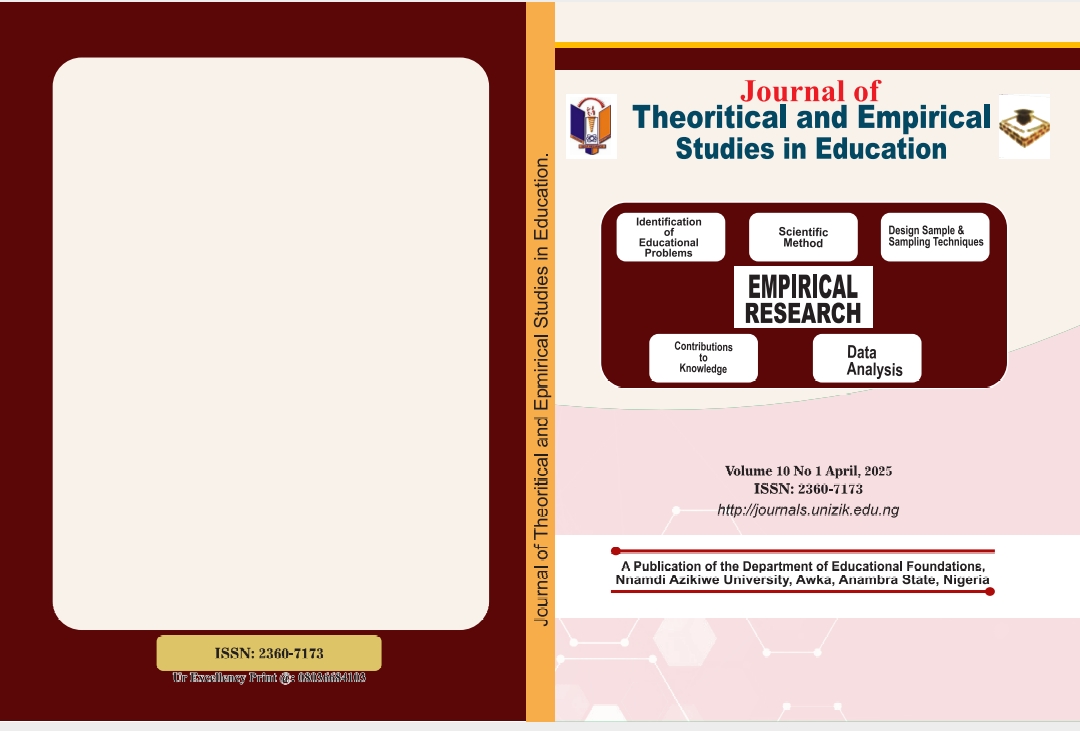Effects of Agricultural Education and Technology usage on the Genetic selection and Climate Resilient Fish Farming Practices in Oyo State
Keywords:
Agricultural education, technology adoption, genetic selection, climate resilience, fish farming,Abstract
This study investigates the effects of agricultural education and technology usage on genetic selection and climate-resilient fish farming practices among fish farmers in Oyo State, Nigeria. Recognizing the significant impact of climate change on
inland fisheries, the study specifically examined the extent to which educational attainment and technological awareness facilitate the adoption of sustainable aquaculture techniques. The study employed a descriptive survey design, and data was collected using structured survey involving 120 fish farmers, and data were analyzed using descriptive statistics, Probit, and Tobit regression models. Findings revealed that most respondents were male (73.3%), married (65.0%), and possessed at least secondary education (66.6%). Access to agricultural extension services (60.0%) and credit facilities (54.2%) was moderate, while cooperative membership
was prevalent (65.0%). Probit regression results demonstrated that tertiary education (β = 1.320, p < 0.01), access to training (β = 0.890, p < 0.01), and availability of credit facilities (β = 0.660, p < 0.01) significantly increased farmers' likelihood of adopting genetic selection practices. Conversely, high technology costs (β = -0.470, p < 0.01) represented a substantial barrier to adoption. The Tobit regression further indicated that training in climate-resilient practices (β = 1.252, p < 0.01), technology awareness (β = 0.785, p < 0.01), and farm size (β = 0.621, p < 0.01) positively influenced the extent of adoption. The study also identified significant challenges limiting adoption, including high costs of technology, limited access to training, and inadequate extension services. This research underscores the need for increased investment in agricultural education, affordable technological solutions, accessible credit facilities, and robust government support policies to foster climate-resilient and productive aquaculture practices in Oyo State.




